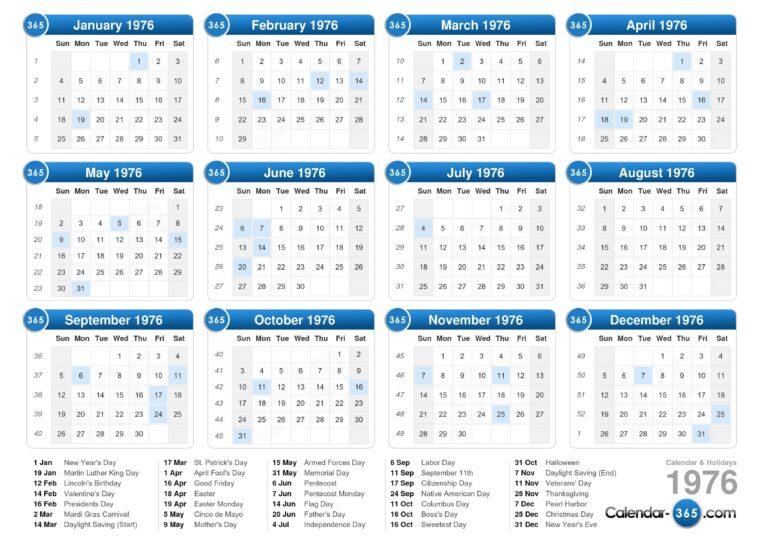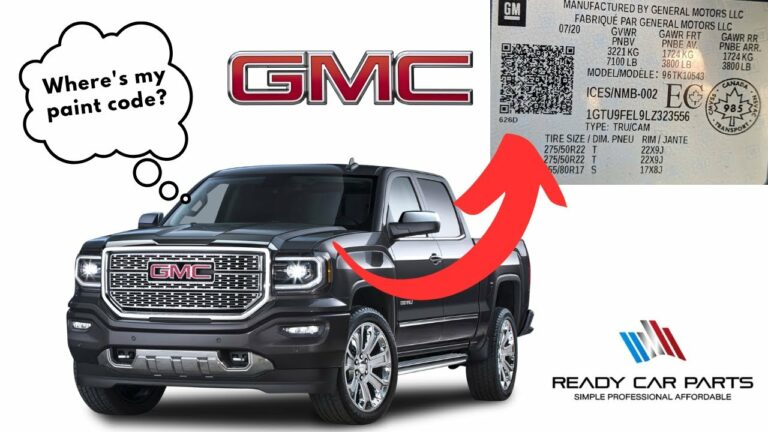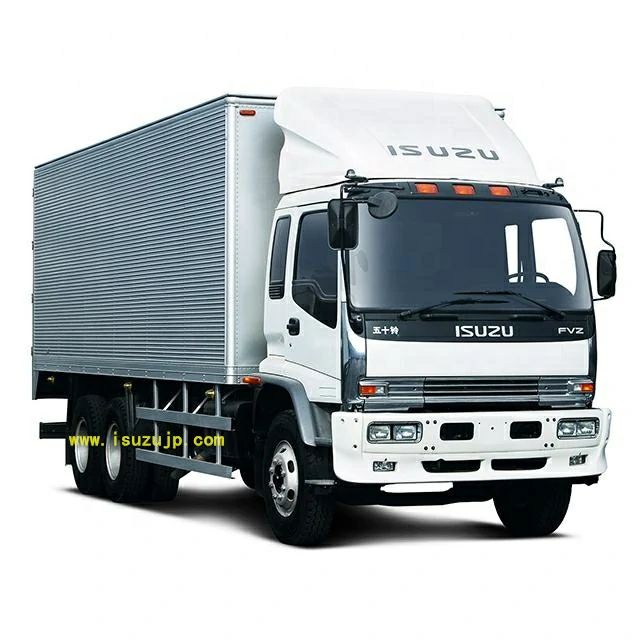Where Is The Best Place To Get A Value On A Used Dump Truck
Where Is The Best Place To Get A Value On A Used Dump Truck cars.truckstrend.com
The rumble of a dump truck is the sound of progress, whether it’s hauling construction materials, clearing debris, or contributing to infrastructure projects. For anyone in the heavy equipment industry, whether you’re looking to buy a new addition to your fleet, sell an aging asset, or simply understand the worth of your existing machinery, accurately valuing a used dump truck is paramount. It’s not just about a price tag; it’s about making informed financial decisions, securing appropriate financing, ensuring fair insurance coverage, and optimizing your operational budget.
Unlike passenger vehicles, valuing a used dump truck is a complex process influenced by a myriad of factors unique to heavy-duty commercial vehicles. There isn’t a single, definitive "blue book" that instantly spits out a perfect number. Instead, arriving at the best value requires a multi-pronged approach, leveraging various resources, expert insights, and meticulous research. This comprehensive guide will navigate the diverse landscape of valuation sources, helping you pinpoint the best places and methods to get an accurate value on a used dump truck.
Where Is The Best Place To Get A Value On A Used Dump Truck
Understanding the Pillars of Dump Truck Value
Before diving into where to find values, it’s crucial to understand what drives them. A dump truck’s value is a dynamic figure shaped by several key attributes:
- Age and Mileage/Hours: While age is a factor, hours of operation (for engines and PTOs) can be more indicative of wear than mileage alone, especially for trucks used for short hauls or extensive idling.
- Make and Model: Reputable manufacturers like Peterbilt, Kenworth, Freightliner, Volvo, Mack, and Western Star often retain better value due to their durability, parts availability, and brand loyalty. Specific models within these brands can also have varying demand.
- Engine and Transmission: The type, power (horsepower and torque), and condition of the engine and transmission are critical. Certain popular and reliable powertrains (e.g., Cummins, Detroit Diesel, Caterpillar, Eaton Fuller) command higher values.
- Body Type and Capacity: Standard dump bodies, transfer dumps, roll-off trucks, belly dumps, side dumps, and rock bodies all have different applications and, consequently, different market demands and values. The capacity (e.g., 10-yard, 20-yard) also plays a significant role.
- Overall Condition: This is arguably the most crucial factor. It encompasses the engine’s health, transmission’s smoothness, frame integrity, tire wear, brake condition, hydraulic system functionality, cab interior, exterior paint, and the condition of the dump body itself. Any rust, dents, leaks, or non-functioning components will significantly depress value.
- Maintenance History: A well-documented history of regular maintenance and repairs adds significant value, demonstrating responsible ownership and proactive care.
- Features and Accessories: PTOs, specialized hitches, plows, spreaders, GPS systems, upgraded interiors, and safety features can enhance a truck’s utility and value.
- Market Demand and Location: Regional economic conditions, local construction activity, fuel prices, and the immediate supply and demand for dump trucks in a specific geographical area can cause values to fluctuate. Trucks in high-demand construction zones will fetch more.

Primary Avenues for Dump Truck Valuation
Finding the "best place" isn’t about a single website or expert, but rather intelligently combining insights from various reliable sources.
1. Online Marketplaces and Listing Sites
These platforms are the digital pulse of the used truck market, offering a real-time snapshot of current asking prices. While not official appraisals, they are indispensable for getting a sense of market value based on comparable sales (comps).
-
Truck-Specific Marketplaces:
- TruckPaper.com: Arguably the most comprehensive online marketplace for heavy-duty trucks and trailers. You can filter by make, model, year, mileage, and location. By looking at similar trucks listed for sale, you can gauge asking prices.
- CommercialTruckTrader.com: Another very popular site with a vast inventory of commercial trucks, including dump trucks. Similar to TruckPaper, it allows detailed searches for comps.
- My Little Salesman: Offers a robust database of heavy equipment and trucks, often with more detailed specifications.
- eBay Motors (Commercial Trucks): While known for consumer vehicles, eBay Motors has a dedicated section for commercial trucks, often including dump trucks. It can provide insights into both "Buy It Now" prices and auction results.
How to use them: Search for trucks that closely match the year, make, model, engine, transmission, and body type of the truck you’re valuing. Pay attention to condition descriptions and photos. Compile a list of 5-10 comparable trucks and note their asking prices. Remember, these are asking prices, not necessarily final sale prices.
-
General Heavy Equipment Marketplaces with Auction Data:
- Ritchie Bros. Auctioneers (rbauction.com): One of the largest industrial auctioneers. Their website features a "price results" section where you can search past auction sales. This is incredibly valuable because it shows actual realized sale prices, not just asking prices. This is often closer to wholesale value.
- IronPlanet.com (now part of Ritchie Bros.): Similar to Ritchie Bros., IronPlanet specializes in online heavy equipment auctions. Their historical data is also a goldmine for understanding true market values.
How to use them: Filter by "dump truck" and narrow down by specifications. Look at multiple past auctions for similar trucks to get a range of sale prices. Pay attention to the date of sale, as market conditions can shift.
2. Professional Valuation Services and Industry Guides
For a more authoritative and often legally recognized valuation, these sources are essential.
-
Randall-Reilly’s Commercial Truck Blue Book / EquipmentWatch: Randall-Reilly publishes valuation guides that are widely used in the industry for commercial trucks and heavy equipment. EquipmentWatch (a service under Randall-Reilly) provides comprehensive data, including residual values, market values, and auction results.
- Pros: Highly respected, data-driven, provides detailed breakdowns.
- Cons: Often subscription-based or requires purchase of guides, which can be costly for a single valuation.
- Best Use Case: For dealerships, financial institutions, large fleet managers, or individuals needing a highly credible, industry-standard valuation.
-
Independent Appraisers: Certified heavy equipment appraisers offer objective, third-party valuations. They conduct thorough inspections, analyze market data, and consider all relevant factors to provide a detailed appraisal report.
- Pros: Unbiased, highly accurate, legally defensible, essential for financing, insurance claims, legal disputes, or significant investments.
- Cons: Can be expensive (typically $500 – $2,000+ depending on complexity and location).
- Best Use Case: When precision is paramount, such as for loan collateral, insurance valuation, tax purposes, estate planning, or high-value transactions. Look for appraisers certified by organizations like the Association of Equipment Management Professionals (AEMP) or American Society of Appraisers (ASA).
3. Dealerships and Brokers
These entities are constantly buying, selling, and trading dump trucks, giving them a pulse on the local and regional market.
-
Authorized Dealerships: Selling a used truck to a dealership will typically yield a lower price (wholesale value) than selling it privately, as they need to factor in reconditioning costs and profit margins. However, they can give you a quick, albeit conservative, trade-in or cash offer.
- Pros: Quick assessment, convenient if you’re trading up.
- Cons: Offer will be lower than retail value.
- Best Use Case: When you need a fast estimate for a trade-in, or if you prefer a hassle-free selling experience. Get quotes from several dealerships.
-
Commercial Truck Brokers: Brokers specialize in connecting buyers and sellers of commercial vehicles. They have extensive networks and can provide insights into what similar trucks are actually selling for in your market.
- Pros: Deep market knowledge, can help facilitate a sale.
- Cons: May charge a commission on a sale.
- Best Use Case: If you need help selling your truck and want someone with expertise to guide the pricing strategy.
4. Mechanics and Inspection Services
While they don’t provide a monetary value directly, a pre-purchase inspection (PPI) or detailed mechanical assessment is indispensable for validating any estimated value. A truck that appears good on paper but has hidden mechanical issues will have its true value severely diminished.
- Pros: Identifies hidden problems, provides leverage for negotiation, ensures mechanical integrity.
- Cons: An added cost (typically $200-$600).
- Best Use Case: Absolutely essential before purchasing any used dump truck, and highly recommended before listing one for sale to preemptively address issues or accurately disclose condition.
Practical Advice and Actionable Insights
- Adopt a Multi-Pronged Approach: Never rely on a single source. Combine insights from online marketplaces, auction results, and if the stakes are high, professional appraisals.
- Be Realistic About Condition: Be brutally honest about the truck’s condition. Buyers will be. Factor in wear and tear, cosmetic damage, and any known mechanical issues. A detailed inspection report adds credibility.
- Factor in Location: A dump truck in a booming construction area will likely command a higher price than one in a stagnant market. Local demand plays a huge role.
- Consider Seasonality: Demand for dump trucks often peaks in spring and summer (construction season) and dips in winter, which can influence prices.
- Compile a Comprehensive Data Sheet: When seeking values or listing your truck, have all details ready: VIN, mileage/hours, engine specs, transmission type, tire condition, maintenance records, photos/videos, and a list of all features and recent repairs.
- Understand Wholesale vs. Retail:
- Wholesale Value: What a dealer or a savvy buyer might pay for the truck as-is, typically lower, reflecting the cost of reconditioning and profit. Auction results often reflect wholesale value.
- Retail Value: The price a private seller or a dealer would list the truck for after reconditioning, including their profit margin. Online marketplace asking prices are typically retail.
Comparative Analysis of Valuation Sources
| Valuation Source/Method | Pros | Cons | Best Use Case | Estimated Cost/Effort |
|---|---|---|---|---|
| Online Marketplaces | Wide selection of comps; current asking prices | Asking prices, not always sale prices; variable data | Getting a general market feel; initial research | Low (Free); Moderate effort for detailed searches |
| Auction Results | Actual sale prices (true market value) | Reflects wholesale value; condition can be vague | Understanding true market trends; wholesale valuation | Low (Free); Moderate effort for deep dives |
| Professional Appraiser | Highly accurate; unbiased; legally defensible | Expensive; time-consuming | High-stakes transactions (financing, legal, insurance) | High ($500-$2,000+); Low effort on your part |
| Dealership Appraisal | Quick and convenient; potential trade-in offer | Often conservative (wholesale); not truly objective | Quick estimate for trade-in; hassle-free selling | Low (Free); Low effort |
| Truck Brokers | Deep market knowledge; facilitates sales | Commission-based; less common for simple valuation | Selling a truck; specific market insights | Variable (Commission on sale); Moderate effort |
| Mechanic Inspection | Crucial for confirming actual condition | Doesn’t provide monetary value directly | Essential before buying/selling; validating value | Moderate ($200-$600); Moderate effort |
| Industry Guides (e.g., EquipmentWatch) | Data-driven, standardized values; comprehensive | Subscription cost; may not reflect hyper-local markets | Financial institutions; large fleet management | High (Subscription); Moderate effort to learn system |
Frequently Asked Questions (FAQ)
Q1: How often does a used dump truck’s value change?
A1: Dump truck values can fluctuate relatively quickly based on economic cycles (especially construction activity), fuel prices, regional demand, and even seasonality. It’s best to get a valuation within 3-6 months of a transaction.
Q2: Is higher mileage always bad for a dump truck?
A2: Not necessarily. A high-mileage truck with excellent, documented maintenance can be more reliable than a low-mileage truck that has been neglected. For dump trucks, engine hours can be as important, if not more so, than mileage, as they often idle or operate PTOs extensively.
Q3: Does the brand of the dump truck significantly affect its value?
A3: Yes, brand matters significantly. Established brands like Peterbilt, Kenworth, Mack, and Freightliner often command higher resale values due to their reputation for durability, parts availability, and strong dealer networks.
Q4: Should I get a professional appraisal even for a relatively inexpensive dump truck?
A4: For lower-value trucks (e.g., under $20,000-$30,000), a professional appraisal might not be cost-effective. In such cases, a combination of thorough online market research, auction results, and a mechanic’s inspection will usually suffice for a fair valuation.
Q5: How much does a professional dump truck appraisal cost?
A5: The cost varies widely based on the appraiser’s experience, location, the complexity of the truck, and the depth of the report required. Expect to pay anywhere from $500 to $2,000 or more.
Q6: What’s the difference between retail and wholesale value for a used dump truck?
A6: Wholesale value is the price a dealer or professional buyer would pay, often reflecting the price at auction or trade-in. It’s lower because it accounts for reconditioning costs and the dealer’s profit margin. Retail value is the higher price a truck is listed for when sold directly to an end-user, either by a dealer or a private seller.
Conclusion
Determining the "best place to get a value on a used dump truck" isn’t about finding a single magic bullet, but rather about strategically combining multiple reliable resources. The most accurate and defensible valuation emerges from a comprehensive approach that includes diligent research on online marketplaces and auction results, understanding the nuances of professional appraisals, consulting with industry experts like dealers or brokers, and crucially, conducting a thorough physical and mechanical inspection.
By meticulously evaluating all the factors that influence value and leveraging the diverse range of tools and expertise available, you can confidently navigate the complex world of used dump truck transactions, ensuring you either buy at a fair price or sell for the maximum possible return. Your success in the heavy equipment market hinges on this informed valuation, transforming what could be a gamble into a calculated and profitable decision.




